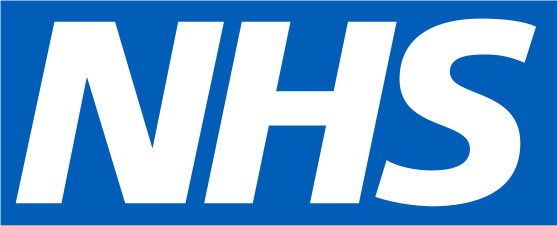What is Cholesterol?
Cholesterol is a fatty substance that is essential for different functions of the body, including the production of various hormones. However, cholesterol excess predisposes to the risk of heart disease and stroke (among other conditions). Cholesterol comes from two main sources: the liver and the foods eaten. The liver produces all the cholesterol that the body needs. Any extra predisposes you to health risks.
What are the Different Types of Cholesterol?
There are two main types of cholesterol:
HDL (High-Density Lipoprotein) Cholesterol:
This is known as the "good" cholesterol. This helps to remove extra cholesterol from the blood stream transporting it to the liver for processing and removal.
Non-HDL Cholesterol:
This includes all other types of cholesterol, including LDL (Low-Density Lipoprotein), often called the "bad" cholesterol. This cholesterol
can build up in blood vessel walls, causing their narrowing and blood flow
restriction to organs.
Total Cholesterol:
This is the total amount of cholesterol in your blood, including both HDL and
non-HDL cholesterol.
What Causes High Cholesterol?
Many factors can cause raised high cholesterol levels. These include:
Diet:
Diets containing high cholesterol levels are a big culprit in increasing blood cholesterol levels. (Please see the list below for the list of such diets.).
Lack of physical activity:
Exercise helps increase HDL cholesterol and reduces LDL cholesterol.
Smoking:
Smoking not only lowers HDL cholesterol but also damages the lining of blood vessels, making it easier for cholesterol to stick to vessel walls.
Body Weight:
Obesity and being overweight can raise LDL cholesterol levels and lower HDL cholesterol levels.
Genetics:
Familial hypercholesterolemia is an inherited condition that leads to high cholesterol levels from birth. This conditions affects 1 out of 250 people
in the UK.
Age:
Ageing affects the liver's ability to remove LDL cholesterol.
Does High Cholesterol Cause Any Symptoms?
High cholesterol is a "silent condition" in that it usually causes no symptoms. Most cases of raised cholesterol are only picked up after blood test. Rarely, very high cholesterol can lead to visible symptoms like fatty deposits under the skin (xanthomas) or around the eyes.
How is High Cholesterol Diagnosed?
High cholesterol is diagnosed through a blood test called a lipid profile. This test measures your total cholesterol, HDL cholesterol, LDL cholesterol, and
triglycerides (another type of fat in your blood). The test results will give a clear picture of your cholesterol levels and help your doctor assess your risk of heart disease.
In the UK, adults aged 40 and over are invited to take part in the NHS Health Check, which includes a cholesterol check.
How to Lower Cholesterol Naturally?
Making lifestyle changes is one of the most effective ways to lower cholesterol naturally. Here are a few tips:
Regular exercise:
Aim for at least 150 minutes of moderate-intensity exercise per week. This can include brisk walking, cycling, or swimming.
Maintain a Healthy Weight:
Losing excess weight, even just a few pounds, can help lower your cholesterol.
Quit Smoking:
Stopping smoking can improve HDL cholesterol levels and improve overall heart health.
Limit Alcohol Intake:
Reducing alcohol consumption to recommended levels can help lower cholesterol levels and reduce the risk of heart and liver disease.
Medicines to Lower Cholesterol:
Sometimes, Cholesterol reduction can not be achieved by lifestyle measures alone. If this is the case, you may be recommended to take some medications to help you achieve this reduction. Common cholesterol-lowering medications include:
Statins:
These are one of the most common medications used to lower cholesterol. Statins work by reducing the amount of cholesterol the liver produces.
Ezetimibe:
This drug reduces the amount of cholesterol your body absorbs from the food you eat.
PCSK9 Inhibitors:
These newer medications can help the liver absorb more LDL cholesterol, lowering its levels in the blood.
Fibrates:
These help reduce triglyceride levels and can modestly increase HDL cholesterol.
Foods that reduce cholesterol:
Keeping an eye on what you eat can help reduce cholesterol and also has other health benefits. Some of these foods include:
Fibre-rich foods:
Soluble fibre present in diets such as oats, beans, lentils, and barley helps reduce cholesterol absorption from the gut.
Fruits and vegetables:
These are rich in antioxidants and fibre, which can help lower cholesterol.
Nuts and seeds:
Almonds, walnuts, and flaxseeds are high in healthy fats. Research has shown that these increase HDL cholesterol while lowering LDL cholesterol.
Fatty fish:
Salmon, mackerel, and sardines are rich in omega-3 fatty acids that help reduce cholesterol and improve heart health.
Plant-based oils:
Olive oil, avocado oil, and other plant-based oils are healthier options than animal fats.
Stanols and sterols:
These compounds found in fortified foods like certain margarines and yoghurts can help reduce cholesterol absorption.
Foods to Avoid / Have in Moderation:
To lower cholesterol, it's essential to avoid or limit certain foods that can raise LDL cholesterol and increase the risk of heart disease:
Saturated fats:
Red meat, full-fat dairy products, butter, and palm oil contain saturated fats which can raise LDL cholesterol levels.
Trans fats:
These are particularly harmful and are found in some processed and baked goods like cakes, biscuits, and fried foods. Trans fats can raise LDL
cholesterol and lower HDL cholesterol.
Refined carbohydrates:
Foods like white bread, pastries, and sugary snacks can spike blood sugar levels and may increase the risk of higher triglyceride
levels.
Processed meats:
Bacon, sausages, and cured meats often contain high levels of saturated fats and salt, which can contribute to high cholesterol.
Excess alcohol:
While moderate alcohol consumption may have some heart benefits, too much alcohol can lead to increased cholesterol and triglycerides.
